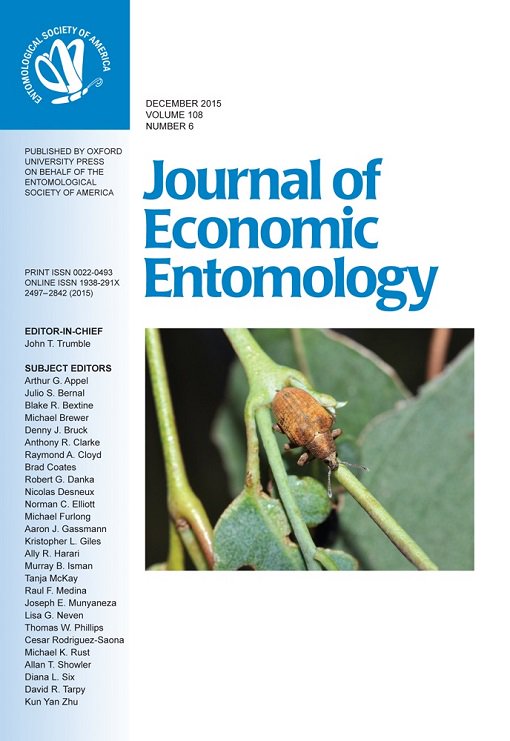The San Jose scale Diaspidiotus perniciosus Comstock is one of the most important pests of deciduous fruit trees. The major cause of recent outbreaks in apple orchards is thought to be the development of insecticide resistance, specifically organophosphates. The first report was given in North America, and now, in Chile. In the present study, San Jose scale populations collected from two central regions of Chile were checked for their susceptibility to different mode of action insecticides in order to establish alternatives to manage this pest. No evidence of cross resistance between organophosphates insecticides and acetamiprid, buprofezin, pyriproxyfen, spirotetramat, sulfoxaflor, or thiacloprid was found. Baselines of LC50–LC95 for different life stages of San Jose scale are given, as reference to future studies of resistance monitoring. The systemic activity of acetamiprid, spirotetramat, and thiacloprid was higher than the contact residue effect of these compounds. For sulfoxaflor, both values were similar. Program treatments including one or more of these compounds are compared in efficacy and impact on resistance ratio values. In order to preserve new insecticides as an important tool to control San Jose scale, resistance management programs should be implemented, considering insecticide mode of action classes alternated or mixed.
How to translate text using browser tools
1 December 2015
Resistance Management for San Jose Scale (Hemiptera: Diaspididae)
K. Buzzetti,
R. A. Chorbadjian,
R. Nauen
ACCESS THE FULL ARTICLE
It is not available for individual sale.
This article is only available to subscribers.
It is not available for individual sale.
It is not available for individual sale.
cross-resistance
Diaspidiotus perniciosus
insecticide
resistance monitoring





